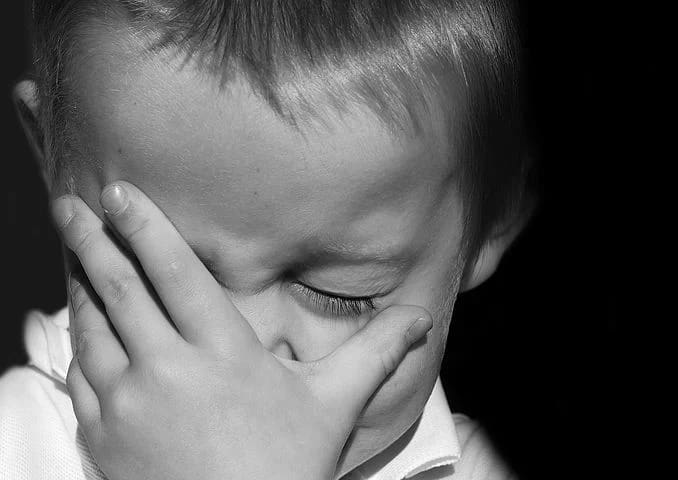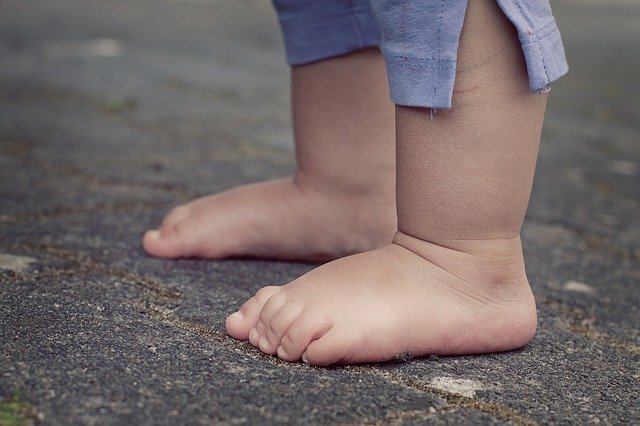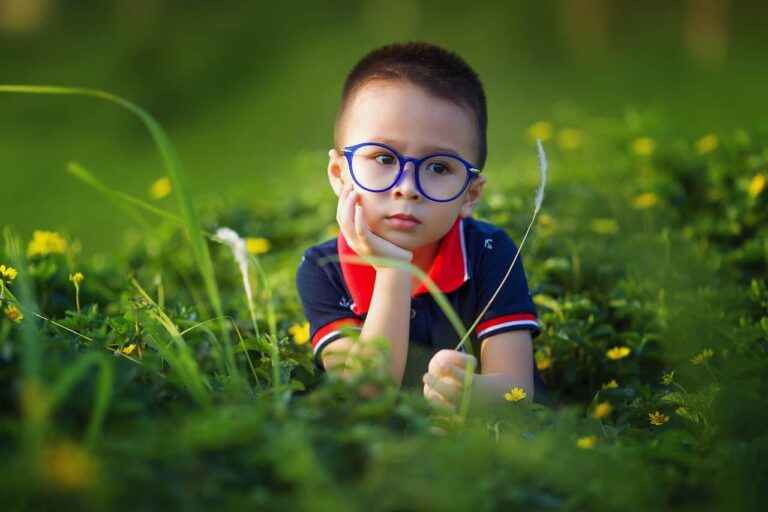Can Toddlers Drink Tea? Safe Choices for Kids
As a parent, I am always looking for ways to keep my child happy, healthy, and safe. When it comes to their diet, I strive to make informed choices that will contribute to their overall well-being. Recently, a question has been on my mind – can toddlers drink tea?
I remember the first time I introduced my little one to the world of tea. It was a chilly winter evening, and I was sipping a warm cup of herbal tea to soothe my soul. As my child observed me with curious eyes, a thought crossed my mind. Could tea be a part of their routine too, offering comfort and delight?
So, like any concerned parent, I began researching the safety of tea for toddlers. And let me tell you, the amount of information out there can be overwhelming. From debates about caffeine content to warnings about certain herbs, it can be difficult to navigate through it all.
But worry not! In this article, we will explore the safety of tea for toddlers and provide guidance on making safe choices for kids. We will delve into the factors to consider when evaluating the safety of tea for toddlers, such as caffeine content, herbal teas versus traditional teas, and considerations for allergies and ingredient sensitivities. Additionally, we will provide an overview of age-appropriate beverages for toddlers to help parents like us make informed decisions about our child’s tea consumption.
Key Takeaways:
- Tea can be a safe beverage choice for toddlers when certain factors are considered.
- The caffeine content in tea should be evaluated, as caffeine is not recommended for young children.
- Herbal teas can be a suitable alternative to traditional teas for toddlers.
- Parents should be mindful of any allergies or ingredient sensitivities their child may have when offering tea.
- Age-appropriate beverages should be considered alongside tea to ensure a balanced diet for toddlers.
Understanding the Safety of Tea for Toddlers
When considering the safety of tea for toddlers, it is important to assess the caffeine content in common teas. Caffeine is a stimulant and is not recommended for children under the age of 12. We will explore the caffeine content in different types of teas and discuss which ones are safe for toddlers to consume.
Assessing Caffeine Content in Common Teas
Caffeine is a natural substance found in tea leaves, and its effects can vary depending on the type and brewing method of the tea. It is important to understand that the caffeine content in teas can vary widely, even within the same type of tea. For example, black tea generally contains more caffeine than green tea, while herbal teas are typically caffeine-free.
To help parents make informed decisions about the caffeine content in tea, here is a general guideline:
- Black tea: Contains the highest amount of caffeine among common teas. This includes popular varieties like Earl Grey and English Breakfast.
- Green tea: Contains less caffeine compared to black tea. However, it still has some caffeine content, though generally lower per cup compared to black tea.
- Herbal tea: Caffeine-free, as most herbal teas are made from a variety of plants, flowers, and herbs that don’t naturally contain caffeine.
It is important to note that decaffeinated teas are not completely caffeine-free. They still contain minimal amounts of caffeine, which may not be suitable for toddlers. Always check the packaging for specific information on caffeine content and consult with a pediatrician if you have concerns.
Herbal Teas Versus Traditional Teas
When it comes to offering tea to toddlers, herbal teas are generally a safer choice due to their natural caffeine-free properties. Herbal teas are made from various herbs and plants, often known for their soothing and calming effects.
Some popular herbal tea options for toddlers include:
- Chamomile tea: Known for its gentle and soothing properties, chamomile tea can help relax toddlers and promote better sleep.
- Peppermint tea: Peppermint tea is commonly used to alleviate stomach discomfort and aid digestion in toddlers.
- Ginger tea: Ginger tea can provide relief from nausea and digestive issues for toddlers. It is essential to use a mild ginger tea with minimal spice for young children.
It is important to read the ingredients label of herbal teas carefully to ensure that there are no potential allergens or ingredients that your toddler may be sensitive to. If you have any concerns, consult with a pediatrician before introducing herbal teas to your toddler’s diet.
Considerations for Allergies and Ingredient Sensitivities
Every child is unique, and some toddlers may have allergies or sensitivities to certain ingredients found in teas. It is vital to be aware of your child’s specific allergies and sensitivities when considering tea consumption.
For example, some toddlers may be allergic to botanicals commonly found in herbal teas, such as chamomile or peppermint. It is essential to carefully read the ingredients list and consult with a pediatrician if you have any concerns about potential allergens in teas.
Additionally, some herbal teas may contain natural flavors or additives that may not be suitable for all toddlers. As a parent, it is crucial to assess the ingredient list and avoid any teas that may contain artificial sweeteners or other additives that are not recommended for toddlers.
To ensure the safety of tea consumption for your toddler, always read the packaging, consult with a pediatrician when necessary, and observe your child for any adverse reactions or sensitivities.
| Tea Type | Caffeine Content | Suitable for Toddlers? |
|---|---|---|
| Black Tea | High | No, due to high caffeine content |
| Green Tea | Moderate | In small quantities, consult with a pediatrician |
| Herbal Tea | Caffeine-free | Generally safe, but check for potential allergens |
Can Toddlers Drink Tea? Evaluating Age-Appropriate Beverages
While tea can be a safe beverage for toddlers, it is essential to evaluate age-appropriate beverages for young children. When determining if their toddlers can drink tea, parents should consider several factors to ensure their child’s safety and well-being.
One important factor to consider is the appropriate age for introducing tea to toddlers. It is generally recommended to wait until children are at least two years old before offering them tea. At this age, their digestive systems are more developed, and they may be able to tolerate tea in moderation.
The quantity and frequency of tea consumption for toddlers is another crucial consideration. It is recommended that toddlers consume no more than 1-2 ounces of tea per day, and it should be diluted with water to minimize caffeine intake. Offering tea as an occasional treat rather than a regular beverage can help ensure that toddlers do not exceed safe consumption levels.
Additionally, parents should carefully choose the type of tea they offer to their toddlers. Herbal teas with no caffeine content, such as chamomile or peppermint, are generally considered safe options. However, it is essential to be cautious when introducing new herbal teas and observe any potential allergies or adverse reactions.
Top Recommended Herbal Teas for Young Children
For parents who choose to give tea to their toddlers, I recommend the following herbal teas specifically formulated for young children. These teas offer various benefits and can be a soothing and safe option for your little ones.
Chamomile: Soothing and Gentle
Chamomile tea is well-known for its calming properties and is often recommended for toddlers who have trouble sleeping or are experiencing restlessness. It can help soothe your child’s nerves and promote a sense of relaxation, making it an excellent choice for bedtime. Chamomile tea is caffeine-free, making it safe for daily consumption.
Peppermint: Benefits for Tummy Troubles
Peppermint tea can be beneficial for toddlers who experience digestive issues such as gas, bloating, or stomach discomfort. It has natural properties that can help alleviate tummy troubles and promote healthy digestion. Peppermint tea is also caffeine-free and can be enjoyed by toddlers in moderation.
Ginger and Fennel: Solutions for Digestive Comfort
Ginger and fennel tea is another excellent choice for toddlers with digestive discomfort. Ginger has natural anti-inflammatory properties that can help soothe the digestive system, while fennel can aid in reducing gas and bloating. This combination tea can provide relief for tummy troubles and promote overall digestive comfort for your little one. It is caffeine-free and can be enjoyed by toddlers in moderation.
When introducing herbal teas to your toddler, it is important to start with small quantities and observe for any adverse reactions or allergies. Always consult with your child’s pediatrician before incorporating any new beverage into their diet. Remember, moderation is key when it comes to tea consumption for young children.
These herbal teas provide a safe and gentle way to introduce new flavors and potential health benefits to your child’s diet. However, it is essential to remember that every child is different, and what works for one child may not work for another. It is always best to monitor your child’s reactions and consult with a healthcare professional if you have any concerns or questions.
Identifying and Avoiding Unsafe Teas for Kids
When it comes to offering tea to kids, not all teas are safe for consumption. It is crucial for parents to be aware of the potential risks associated with certain teas. In this section, we will explore the dangers of caffeinated and fluoride-rich teas for kids, as well as highlight specific herbs that should be avoided when offering tea to children.
The Risks of Caffeinated and Fluoride-Rich Teas
Caffeine is a stimulant and is not recommended for children under the age of 12. High levels of caffeine can have adverse effects on a child’s developing nervous system and may lead to sleep disturbances, increased heart rate, and irritability. It is important to carefully check the caffeine content of teas before giving them to kids.
Fluoride, on the other hand, can be found naturally in teas and is beneficial for dental health in appropriate amounts. However, excessive fluoride consumption in early childhood can lead to dental fluorosis, a condition that affects the appearance and strength of tooth enamel. Parents should be cautious when offering teas with high fluoride content to young children.
Herbs to Steer Clear of: From Echinacea to Senna
While herbal teas can have various health benefits, certain herbs can pose risks to children. Echinacea is commonly used to boost the immune system, but it should be avoided in children under the age of 12 due to potential allergic reactions and interactions with medications. Similarly, senna, an herb commonly used for its laxative properties, should not be given to children without medical supervision.
It is crucial for parents to educate themselves about the potential risks associated with specific herbs and consult with healthcare professionals before offering herbal teas to their children.
| Unsafe Teas for Kids | Risks |
|---|---|
| Caffeinated teas | Potential sleep disturbances, increased heart rate, and irritability. |
| Fluoride-rich teas | Potential for dental fluorosis with excessive fluoride consumption. |
| Echinacea tea | Potential allergic reactions and interactions with medications. |
| Senna tea | Potential adverse effects, especially without medical supervision. |
Tea Alternatives: Safe and Fun Options for Toddlers
While tea can be a delightful and safe beverage for toddlers, some parents may prefer to explore alternative options. In this section, I will provide a variety of tea alternatives that are both safe and enjoyable for your little ones.
Creative Mock Tea Recipes
If you want to give your toddler the experience of drinking tea without the actual tea content, creative mock tea recipes are a perfect solution. These recipes mimic the flavors and presentation of traditional tea, making it a fun and engaging experience for your child. Consider trying out these delicious and kid-friendly mock tea recipes:
- Chai Spice Milk: A warm and comforting drink made with milk, honey, and a blend of aromatic spices like cinnamon, ginger, and cardamom.
- Berry Splash Punch: A refreshing and fruity mock tea made with a combination of mixed berry juice, sparkling water, and a hint of lemon.
- Minty Lemonade: A zesty and invigorating mock tea infused with fresh mint leaves, lemon juice, and a touch of sweetness.
These creative mock tea recipes offer a delightful alternative to traditional tea while still providing a flavorful and enjoyable beverage for your toddler.
Fruit Infusions: A Sweet Yet Healthy Choice
Another excellent tea alternative for toddlers is fruit infusion. Fruit infusions provide a sweet and flavorful beverage option that is not only appealing to their taste buds but also healthy. Here are some simple fruit infusion ideas for your little one to try:
- Strawberry-kiwi infusion: Add sliced strawberries and kiwi to a pitcher of water and let it infuse for a few hours for a refreshing and vitamin-rich drink.
- Citrus splash infusion: Combine slices of oranges, lemons, and limes with water for a tangy and hydrating fruit infusion.
- Watermelon mint infusion: Mix diced watermelon and fresh mint leaves in a pitcher of water for a cool and refreshing summer drink.
These fruit infusions offer a hydrating and flavorful beverage option for toddlers while providing essential vitamins and minerals from fresh fruits.
By exploring these tea alternatives, you can offer your toddler a variety of safe and enjoyable beverage options that promote their health and well-being.
Preparing Tea for Toddlers: Steeping and Serving Tips
When it comes to preparing tea for toddlers, following specific guidelines is crucial to ensure their safety and enjoyment. Here are some steeping and serving tips for parents to keep in mind:
Optimal Water Temperature and Tea Strength
When preparing tea for toddlers, it is essential to use optimal water temperature to achieve the right tea strength. Steeping tea at the appropriate temperature ensures that the flavor and beneficial properties are extracted while avoiding any potential risks. It is recommended to use water that is just below boiling point, around 180-190°F (82-88°C), to steep tea for toddlers.
Tea strength is another important factor to consider. For toddlers, it is best to start with a lighter tea strength to avoid overwhelming their taste buds. Steeping the tea for a shorter duration, around 1-2 minutes, will result in a milder flavor that is more suitable for young children.
Remember that different types of tea may require adjustments in water temperature and steeping time. Always refer to the specific instructions provided on the tea packaging to ensure the optimal brewing conditions for each variety.
Avoiding Excessive Sweeteners
While adding sweeteners to tea can enhance its taste, it is important to avoid excessive sweeteners when preparing tea for toddlers. Young children have an innate preference for sweet flavors, and offering overly sweetened beverages can lead to an increased preference for sugary drinks and potential health risks such as tooth decay and obesity.
Instead of relying on excessive sweeteners, consider exploring the natural sweetness of certain herbal teas or adding a touch of honey in moderate amounts to enhance the flavor. It is recommended to gradually reduce the amount of sweeteners used when serving tea to toddlers, gradually allowing them to develop a taste for the natural flavors of tea.
By following these steeping and serving tips, parents can prepare tea for toddlers that is both safe and enjoyable, allowing them to explore new flavors and enjoy a comforting beverage.
Enhancing Your Toddler’s Tea Experience
Tea can be more than just a beverage for toddlers. By incorporating tea into relaxing bedtime routines, you can enhance your toddler’s tea experience and create a calming ritual before bedtime. This not only promotes relaxation but also contributes to better sleep for your little one.
Incorporating Tea into Relaxing Bedtime Routines
Bedtime routines play a crucial role in helping toddlers wind down and prepare for sleep. Adding tea to this routine can further enhance the relaxation and promote a sense of calm. Here are some tips and ideas for incorporating tea into your toddler’s bedtime routine:
- Choose the right tea: Select herbal teas that are safe and suitable for toddlers, such as chamomile or lavender. These teas are known for their soothing properties and can help your child relax.
- Set the ambiance: Create a peaceful environment by dimming the lights, playing soft music, and using calming scents like lavender in the room. This will help create a serene atmosphere for enjoying tea before bedtime.
- Make it a special ritual: Use special tea cups and saucers specifically for your toddler to make the experience feel unique and exciting. This will also help your child develop a sense of ownership over their tea time.
- Enjoy tea together: Sit with your toddler and enjoy a cup of tea together. This not only fosters a sense of connection but also allows you to lead by example and demonstrate the enjoyment of tea.
- Read a bedtime story: Pairing tea time with a calming bedtime story can create a soothing routine that signals to your toddler that it’s time to relax and prepare for sleep.
Fostering a Tea Culture at Home: Engagement and Education
In addition to incorporating tea into bedtime routines, fostering a tea culture at home can provide opportunities for engagement and education. By involving your child in the preparation and learning about different types of teas, you can create a rich experience that extends beyond just drinking tea. Here’s how you can foster a tea culture at home:
- Tea exploration: Introduce your child to the variety of teas available by offering different flavors and types. Encourage them to explore and discover their preferences.
- Tea education: Teach your child about the origins, history, and cultural significance of different teas. This will help them develop an appreciation for tea and its diverse traditions.
- Tea experimentation: Engage your child in the process of tea preparation, from measuring tea leaves to steeping and serving. Explore different brewing techniques and allow your child to develop their own tea-making skills.
- Tea ceremonies: Create special tea ceremonies or tea parties at home, where your child can invite friends or family members to share the tea experience. This encourages social interaction and fosters a sense of community.
- Tea-related activities: Encourage creativity by engaging your child in tea-related activities, such as designing their own tea labels or creating artwork inspired by tea. This sparks imagination and enhances their overall tea experience.
By incorporating tea into relaxing bedtime routines and fostering a tea culture at home, you can enhance your toddler’s tea experience and provide them with a rich and enjoyable journey into the world of tea.
Exploring the Potential Health Benefits of Tea for Kids
Tea offers more than just a delicious taste for kids – it also provides potential health benefits that can support their well-being. In this section, we will delve into the various ways tea can contribute to the health of children. From addressing symptoms of common illnesses to promoting hydration and serving as an alternative to sugary drinks, tea can play a beneficial role in your child’s diet.
Addressing Symptoms of Common Illnesses
Tea has long been used as a natural remedy for addressing symptoms of common illnesses in both children and adults. Certain teas are believed to provide relief for ailments such as colds, allergies, and tummy troubles. For example, chamomile tea can soothe a sore throat and promote relaxation, while peppermint tea is known for its ability to ease nausea and aid digestion. By incorporating these teas into your child’s diet when appropriate, you may assist in relieving their discomfort and supporting their recovery.
Hydration and Alternative to Sugary Drinks
Hydration is essential for children’s overall health and well-being. Encouraging your child to consume an adequate amount of fluids throughout the day is crucial, and tea can be a great option for hydration. Tea provides a flavorful and refreshing alternative to sugary drinks that are often high in calories and detrimental to oral health. By offering tea to your child, you can promote hydration while minimizing their consumption of sugary beverages.
Tea for kids is a beverage that offers both enjoyable taste and potential health benefits. By addressing symptoms of common illnesses and supporting hydration, tea can be a valuable addition to your child’s diet. Furthermore, it serves as a healthier alternative to sugary drinks, allowing you to prioritize your child’s well-being while satisfying their thirst. As we continue to explore the topic of tea for kids, we will now turn our attention to the insights of pediatricians regarding the introduction of tea to your child’s diet and considerations to keep in mind.
Pediatrician Insights: When to Introduce Tea to Your Child’s Diet
Considering Health Conditions and Medication Interactions
To offer expert insights on the topic, I interviewed pediatricians to gather their opinions on when to introduce tea to a child’s diet. They emphasized the importance of considering health conditions and medication interactions before offering tea to children.
Pediatricians highlighted that children with certain health conditions, such as gastroesophageal reflux disease (GERD) or chronic constipation, may need to avoid certain types of tea. Additionally, if your child is taking any medications, it’s essential to consult their healthcare provider to determine if there are any potential interactions between the medication and tea.
Advice on Frequency and Quantity of Tea Consumption
When it comes to the frequency and quantity of tea consumption for kids, pediatricians recommend moderation. It’s generally advisable to introduce tea to your child’s diet gradually and in small amounts to gauge their tolerance and prevent any adverse effects.
The exact frequency and quantity of tea will depend on your child’s age, overall health, and individual circumstances. Pediatricians suggest starting with a small serving, such as a few sips, and gradually increasing it as your child grows older. However, it’s crucial to monitor their reactions and adjust the quantity accordingly.
It’s important to keep in mind that tea should not replace essential sources of nutrition, such as milk or water, in your child’s diet. Encouraging a well-balanced diet with a variety of healthy beverages will help ensure optimal health and development.
What Research Says: Tea’s Effects on Childhood Development
In this section, we will explore the existing research on the effects of tea on childhood development. By examining scientific studies on herbal remedies for children, we can gain insights into the potential benefits and risks associated with tea consumption in childhood. Additionally, we will consider community-based evidence and anecdotal experiences with tea for kids to provide a well-rounded understanding of this topic.
Investigating Scientific Studies on Herbal Remedies for Children
Scientific studies play a crucial role in determining the effects of herbal remedies, including tea, on children’s development. These studies involve rigorous research methods and aim to provide evidence-based insights into the potential benefits and risks associated with tea consumption. By evaluating the findings of these studies, we can gain valuable knowledge about how tea may impact various aspects of childhood development.
Understanding Community-Based Evidence and Anecdotal Experiences
In addition to scientific studies, community-based evidence and anecdotal experiences also contribute to our understanding of tea’s effects on childhood development. Community-based evidence involves gathering information from groups of individuals who have observed the effects of tea on children in their own communities. Anecdotal experiences, on the other hand, refer to personal accounts and stories shared by individuals who have witnessed the effects of tea on their own children.
While community-based evidence and anecdotal experiences may not have the same level of scientific rigor as controlled studies, they provide valuable insights into the real-world experiences of parents and caregivers. These perspectives can offer unique and practical observations about the effects of tea on childhood development that may not be captured in formal research studies.
By combining the findings of scientific studies, community-based evidence, and anecdotal experiences, we can develop a comprehensive understanding of the potential benefits and risks of tea consumption in childhood. This holistic approach allows us to make informed decisions regarding the inclusion of tea in a child’s diet.
Conclusion
After exploring the safety and considerations of offering tea to toddlers, it is important to summarize the key do’s and don’ts for parents. When it comes to tea consumption, the following guidelines can help ensure the safety and well-being of your child:
Do’s of Offering Tea to Toddlers:
1. Introduce tea at an age-appropriate time, typically after the age of 2, and consult with your child’s pediatrician beforehand.
2. Opt for caffeine-free herbal teas, such as chamomile, peppermint, ginger, and fennel, which are considered safe for toddlers.
3. Offer small quantities of tea in moderation, limiting it to 1-2 ounces per serving for toddlers.
Don’ts of Offering Tea to Toddlers:
1. Avoid teas with high caffeine content, such as black tea, green tea, and specialty teas, as they can have negative effects on toddlers.
2. Steer clear of teas that contain potential allergens or irritants, such as echinacea or senna, which may cause adverse reactions in young children.
3. Do not add excessive sweeteners, such as sugar or honey, to your child’s tea, as this can contribute to an unhealthy sugar intake.
Ultimately, as a parent, it is crucial to make an informed decision about offering tea to your child, taking into account their unique needs and preferences. Consider consulting with your child’s pediatrician to get personalized advice and guidance. By following the guidelines outlined in this article, you can ensure that your child’s tea consumption is safe and enjoyable.
FAQ
Can toddlers drink tea?
Yes, tea can be a safe beverage for toddlers when consumed in moderation and under certain conditions. Read on to learn more about making safe choices for tea consumption in toddlers.
Is tea safe for toddlers?
Tea can be safe for toddlers, but it is important to consider factors such as caffeine content, herbal teas vs. traditional teas, and potential allergies and sensitivities. We will provide more information on the safety of tea for toddlers in this article.
Can toddlers drink Earl Grey tea?
Earl Grey tea contains caffeine and is not recommended for toddlers. It is best to avoid caffeinated teas when offering tea to young children.
Can toddlers drink clove tea?
Clove tea should be avoided for toddlers. Certain spices, like cloves, may not be suitable for young children. It’s best to opt for herbal teas that are safe for their consumption.
Can 2-year-olds drink tea?
While some 2-year-olds may be able to tolerate small amounts of tea, it is generally recommended to wait until children are closer to 4 years old before introducing tea into their diet. Always consult with a pediatrician before offering tea to young children.
Can toddlers have lemongrass tea?
Lemongrass tea is generally safe for toddlers to consume in moderation. However, it is always best to consult with a pediatrician before introducing any new beverage or food to your child’s diet.
Can you give tea to toddlers?
Yes, tea can be given to toddlers, but it is important to consider their age, health conditions, and individual needs. We will provide guidance on evaluating age-appropriate beverages for toddlers in this article.
Is milk tea safe for toddlers?
Milk tea can be safely consumed by toddlers as long as it does not contain any additives or excessive sweeteners. It is important to use caution and moderation when offering milk tea to young children.
What are the best teas for toddlers?
The best teas for toddlers are herbal teas that are caffeine-free, such as chamomile, peppermint, ginger, and fennel tea. These teas offer soothing properties and can help with digestion and tummy troubles in young children.
What are the risks of caffeine in tea for kids?
Caffeine is a stimulant and is not recommended for children under the age of 12. Excessive caffeine consumption in toddlers can lead to restlessness, irritability, sleep disturbances, and other potential side effects. It is best to choose caffeine-free teas for young children.
Are there any unsafe teas for kids?
Some teas, such as those with high caffeine content or fluoride-rich teas, may not be safe for kids. Certain herbs, like echinacea and senna, should also be avoided in tea for kids. We will provide more information on identifying and avoiding unsafe teas in this article.
Can toddlers drink herbal tea?
Yes, herbal teas can be a safe and beneficial option for toddlers. Certain herbal teas, such as chamomile, can have soothing and calming effects on young children. However, it is important to choose caffeine-free herbal teas and consult with a pediatrician before introducing any new beverage to your child’s diet.
What are some tea alternatives for toddlers?
If you prefer not to give tea to your toddler, there are several safe and fun alternatives available. You can try creative mock tea recipes or fruit infusions that provide a flavorful and healthy beverage option for your child. We will discuss these alternatives in more detail in this article.
How should I prepare tea for toddlers?
When preparing tea for toddlers, it is important to use an optimal water temperature and tea strength. It is also recommended to avoid excessive sweeteners in toddler tea to promote healthier beverage choices. We will provide more tips on preparing tea for toddlers in this article.
How can I enhance my toddler’s tea experience?
You can enhance your toddler’s tea experience by incorporating tea into relaxing bedtime routines. Creating a calm tea ritual before bedtime can promote relaxation and better sleep for toddlers. We will provide tips and ideas for enhancing your toddler’s tea experience in this article.
What are the potential health benefits of tea for kids?
Tea can offer potential health benefits for kids beyond being a flavorful beverage. Certain teas, such as chamomile, peppermint, and ginger, can address symptoms of common illnesses like colds, allergies, and tummy troubles. Additionally, tea can be a healthier alternative to sugary drinks and can contribute to hydration in young children.
When should I introduce tea to my child’s diet?
The introduction of tea to a child’s diet should be based on factors such as their age, health conditions, and potential interactions with medications. We will provide expert insights and guidance on when to introduce tea to your child’s diet in this article.
What does research say about tea’s effects on childhood development?
Research on tea’s effects on childhood development is limited, but there have been scientific studies on herbal remedies for children. We will explore what existing research says about tea’s effects on childhood development and discuss community-based evidence and anecdotal experiences in this article.









